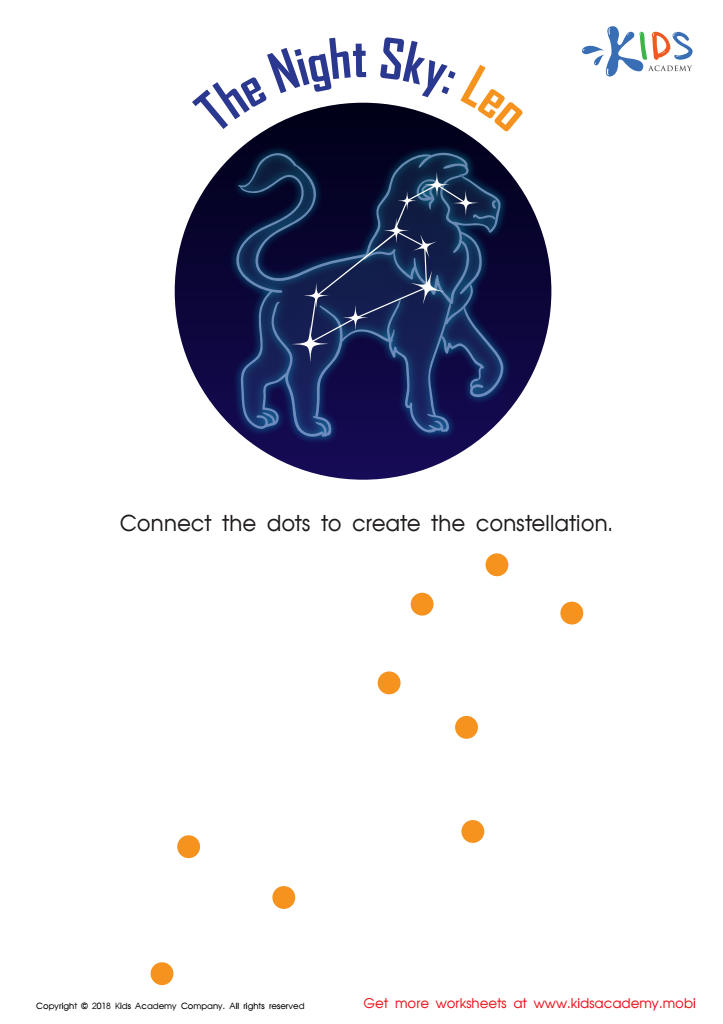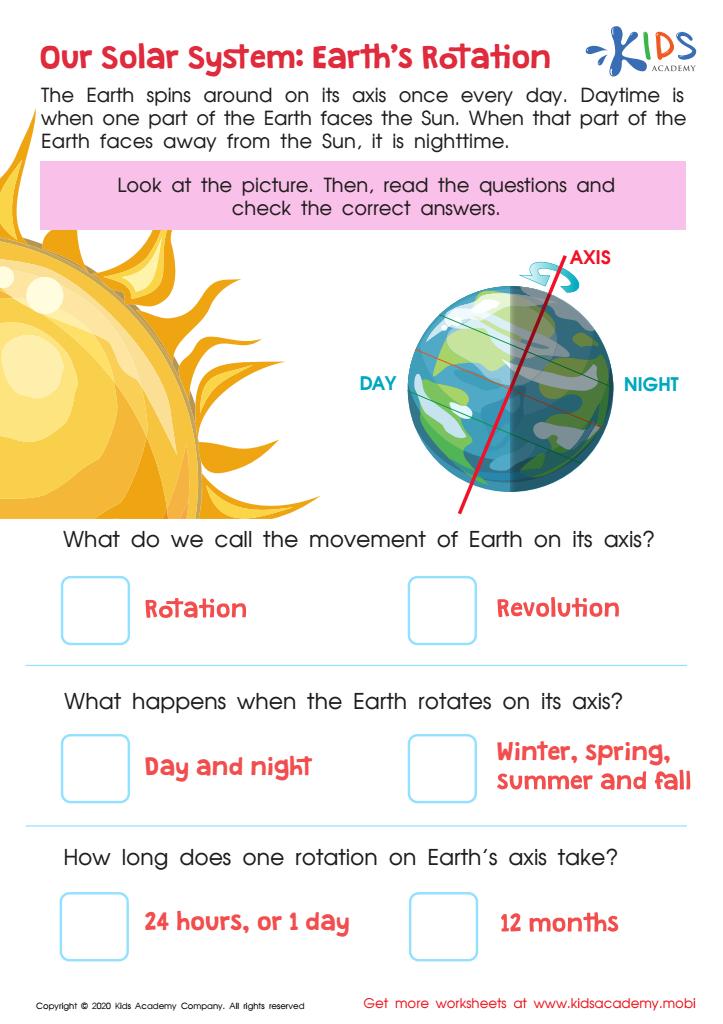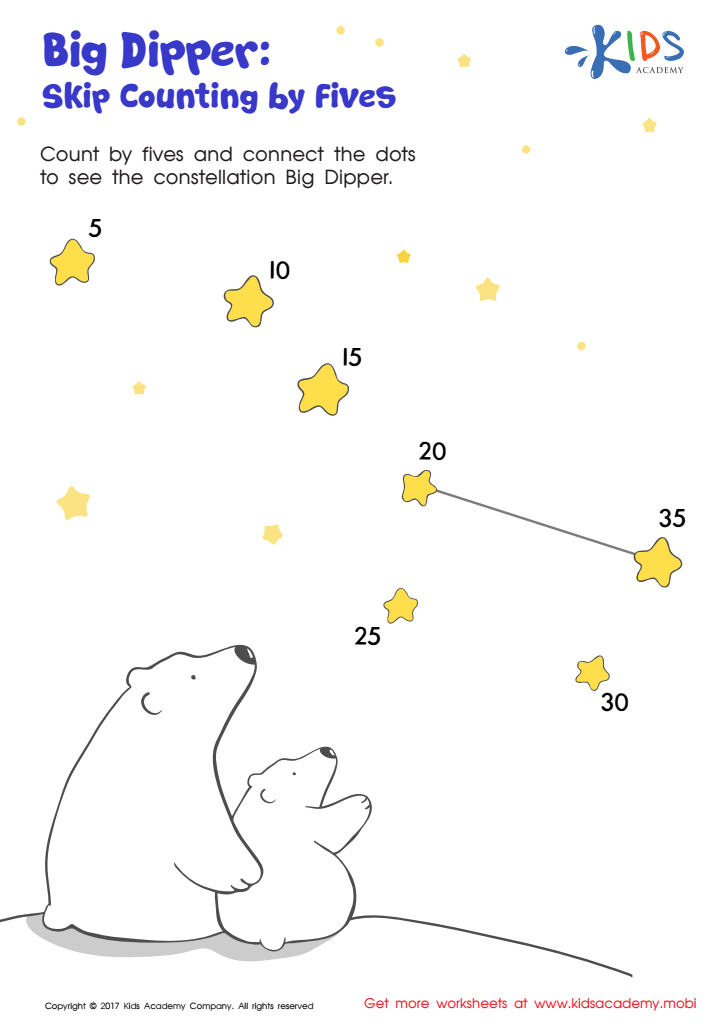Astronomy basics Worksheets for 6-Year-Olds
3 filtered results
-
From - To
Our Astronomy Basics Worksheets for 6-Year-Olds are designed to inspire young astronomers and foster a love for space exploration! Through fun and engaging activities, kids will learn about planets, stars, the moon, and the sun. These worksheets aim to build foundational knowledge of the solar system, teach key astronomical terms, and spark curiosity. Colorful illustrations and simple explanations ensure that learning about space becomes an enjoyable adventure. Perfect for at-home enrichment or classroom use, these printable worksheets are an out-of-this-world resource for parents and teachers looking to expand their little one's learning horizons. Explore the cosmos together with Kids Academy!


The Night Sky: Leo Worksheet


Our Solar System: Earth's Rotation Printable
Parents and teachers should care about teaching basic astronomy to 6-year-olds because it fosters curiosity and a lifelong love of learning. At this age, children are naturally inquisitive and eager to explore the world around them, making it the perfect time to introduce them to the wonders of the universe. Understanding basic concepts like the stars, moon, and planets can ignite a sense of wonder and awe, encouraging children to ask questions and seek out answers.
Moreover, learning about astronomy helps develop critical thinking and problem-solving skills. It can introduce basic scientific principles and methods, such as observation, pattern recognition, and hypothesizing. These skills are foundational for success in all areas of learning and can help children excel in school.
Additionally, teaching astronomy can strengthen a child's connection to nature and the environment. As they understand the Earth's place in the vast cosmos, they may gain a greater appreciation for the planet and the importance of taking care of it.
Finally, astronomy can be a shared, fun activity for parents, teachers, and children. Stargazing and discussing celestial events can create bonding opportunities, leading to meaningful educational experiences and shared memories. In essence, these early lessons can set the stage for both academic success and a deeper appreciation of the natural world.

 Assign to My Students
Assign to My Students
















